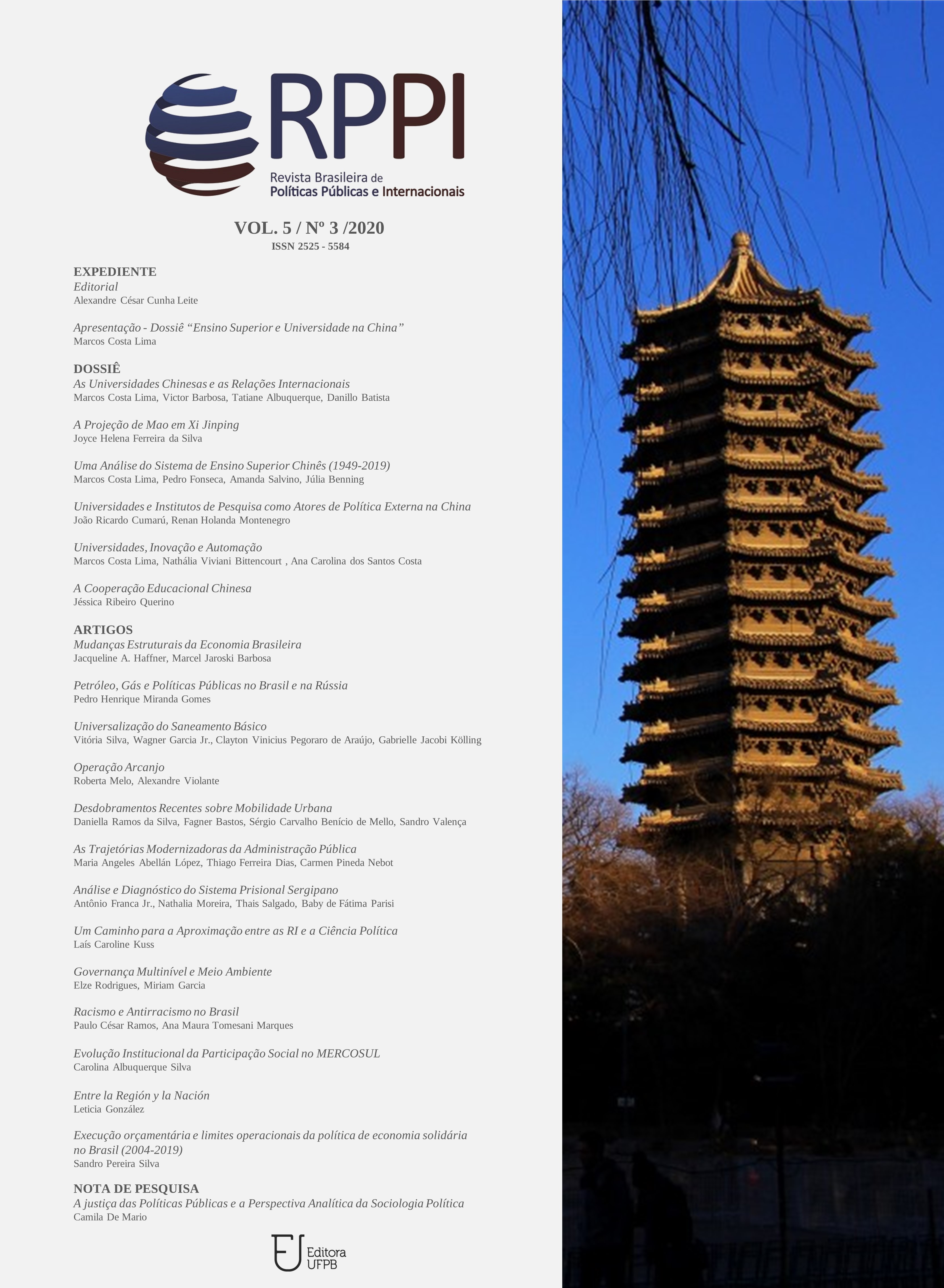Uma Análise do Sistema de Ensino Superior Chinês (1949-2019)
políticas, avanços e desafios
DOI:
https://doi.org/10.22478/ufpb.2525-5584.2020v5n3.55346Palavras-chave:
Universidades; Universidades na China; Reformas do Ensino Superior na China; Políticas de desenvolvimento.Resumo
Este artigo tem como objetivo analisar istoricamente o sistema educacional superior chinês, apresentando suas principais políticas e avanços. É percebido que o desenvolvimento chinês é surpreendente, e o papel dessas reformas educacionais tem contribuído com os avanços, tanto em recursos humanos quanto em inovação, bem como em infraestruturas educacionais. O ensino superior tem sofrido reformulações desde 1949, mas no período pós reforma e abertura, o ponto de inflexão no ensino superior veio ocorrer em 1993 quando massivas reformas foram implantadas com o intuito de dotar o sistema superior chinês de maior capacidade de atender as demandas sociais e política da China. Desse modo, entre 1993 e 2010, as reformas tiveram ênfase na massificação, descentralização, liberação e privatização. Posteriormente no intuito de criar universidades de qualidade internacional. O trabalho incide ainda na explicitação de dois projetos, o primeiro intitulado de Projeto 211, implementado em 1995, com o governo buscando investir em cerca de 100 universidades para dotá-las de maior capacidade técnico-cientifica no século 21. Já o segundo projeto, lançado em 1998, foi chamado de o Projeto 985 e tinha como objetivo criar universidades de nível mundial no século XXI. Por fim, o trabalho apresenta desafios ainda existentes para o desenvolvimento do ensino superior.
Downloads
Downloads
Publicado
Edição
Seção
Licença
Autores que publicam nesta revista concordam com os seguintes termos:- Autores mantém os direitos autorais e concedem à revista o direito de primeira publicação, com o trabalho simultaneamente licenciado sob a Licença Creative Commons Attribution que permite o compartilhamento do trabalho com reconhecimento da autoria e publicação inicial nesta revista.
- Autores têm autorização para assumir contratos adicionais separadamente, para distribuição não-exclusiva da versão do trabalho publicada nesta revista (ex.: publicar em repositório institucional ou como capítulo de livro), com reconhecimento de autoria e publicação inicial nesta revista.
- Autores têm permissão e são estimulados a publicar e distribuir seu trabalho online (ex.: em repositórios institucionais ou na sua página pessoal) a qualquer ponto antes ou durante o processo editorial, já que isso pode gerar alterações produtivas, bem como aumentar o impacto e a citação do trabalho publicado (Veja O Efeito do Acesso Livre).




_.jpg)






.png)


.jpg)
_.png)
